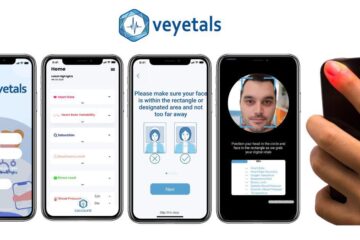
Blood sugar, also known as blood glucose, is an important aspect of our health because it provides energy to our cells and tissues. Blood sugar levels must be monitored on a regular basis to ensure they remain within the normal range, which varies depending on age, gender, weight, and health status. In this blog, we will discuss when and why blood sugars should be measured.
When to Check Your Blood Sugar:
Before Meals: Blood sugar levels are typically lowest before meals, so it is critical to check them before eating. Checking your blood sugar levels before meals can help you determine how well your body manages glucose and how much insulin you may need to take.
After Meals: Because blood sugar levels typically peak after meals, it’s critical to check them two hours after eating. This will help you understand how your body manages glucose after eating and how different foods affect your blood sugar levels.
Checking your blood sugar levels before bed is essential because it can help you determine if your levels are stable throughout the night. If your levels are too high or too low, it can interfere with your sleep and even cause dangerous conditions such as hypoglycemia or hyperglycemia.
Checking your blood sugar levels at random times during the day is also important because it can help you understand how different activities, such as exercise, stress, or illness, can affect your blood sugar levels.
Why Is Blood Sugar Testing Necessary?
Diabetes Management: If you have diabetes, it is critical to monitor your blood sugar levels to ensure that they remain within a safe range. This enables you to understand how different foods, medications, and activities affect your blood sugar levels, allowing you to make the necessary adjustments to effectively manage your diabetes.
Detecting Trends: By regularly monitoring your blood sugar levels, you can detect any trends that may indicate a problem. If your blood sugar levels are consistently higher or lower than normal, this could indicate a health problem that needs to be addressed.
Avoiding Complications: High blood sugar levels can cause a variety of health issues, including vision loss, kidney damage, nerve damage, and heart disease. You can avoid these complications by regularly monitoring your blood sugar levels and taking steps to keep them within a safe range.
Improving Quality of Life: Regularly monitoring your blood sugar levels can help you understand how different factors affect your health, which can improve your quality of life. This information can help you make more informed decisions about your diet, lifestyle, and medication regimen, resulting in better health and well-being.
Therefore, monitoring your blood sugar levels is critical for good health, especially if you have diabetes. To detect trends and avoid complications, it is critical to measure your blood sugars before meals, after meals, before bed, and at random throughout the day. You can improve your quality of life and maintain good health by regularly monitoring your blood sugar levels.
Table of Contents
ToggleAbout Us:
Our cloud based, lightweight API allows Veyetals to be integrated with the healthcare apps and platforms that matter to you most. The app is interoperable with other healthcare management systems including, but not limited to, SenSights.AI. Veyetals drives information sharing with other health management solutions and further enhances the continuum of patient care.
Download our FREE app here
Follow us on LinkedIn at veyetals.com for more updates



